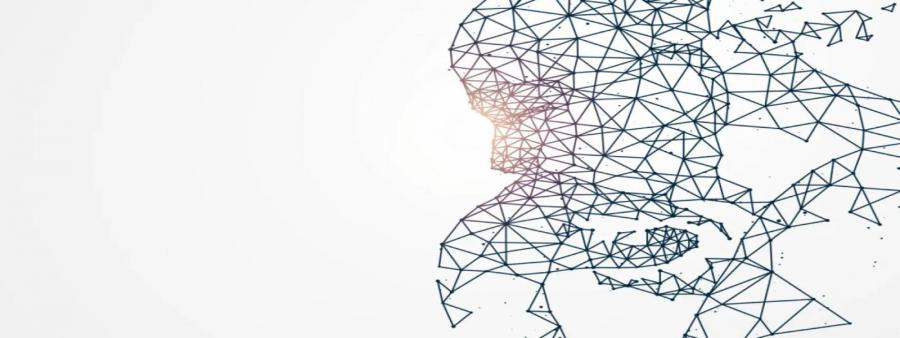The importance of critical thinking in times of misinformation

The importance of critical thinking has become even more evident in the information age. With the overwhelming amount of information available on the internet, it is easy to fall into the trap of misinformation, and wreak havoc on data reliability and decision making.
Fake news, already known for its great impact on contemporary society, clouds critical thinking and hinders the veracity of sources, becoming misleading information that blocks the ability to make reasoned decisions.
In today's post, we talk about critical thinking, and its role in philosophy and in today's society as a lever towards better -more informed and responsible- decision making.
Read on!
What is critical thinking and why is it so important today?
Critical thinking is an essential skill in life and learning. It is defined as the ability to analyze, evaluate and synthesize information objectively and systematically.
We call critical thinking the ability to locate strengths and limitations in intellectual positions, configuring one's own positions with well-founded reasons.”
- Jordi Feixas, Director Acadèc de Graus of the Faculty of Philosophy La Salle-URL
It is a cognitive process that allows people to question the information they receive and form their own judgment about it.
Critical thinking also helps us by recognizing the signs of misinformation and propaganda, confirmation bias or the use of emotive language. When we are alert to these signals, we can identify misleading sources of information and take steps to verify information before accepting it as true.
With the advent of new technologies, is critical thinking clouded?
The development of new technologies and the constant evolution of digital tools spread access to information. This easy access casts doubt on the veracity and quality of the information available - which does not need to be validated to be published - and can lead to a lack of critical thinking.
Every sphere of social and personal life is conditioned by the omnipresence of the mass media.”
- Ignacio Peyra, professor of the Philosophy Degree at La Salle-URL
In addition, social networks and digital platforms that are presented in quick consumption chunks critically decrease processing and analysis capacity.
New technologies have also led to an increase in the manipulation of information and public opinion. Therefore, critical thinking is necessary to identify and analyze these attempts at manipulation.
Critical thinking skills
Critical thinking is an essential skill in problem solving, decision making and understanding the world around us. These skills include characteristics such as:
-
Interpret - This skill involves breaking down information into smaller parts to better understand details.
-
Analysis and argumentation - identification of biases, errors or inconsistencies in information, and assessment of the credibility of sources.
-
Self-regulation - Self-regulation is the ability to organize thoughts and set aside personal biases in order to arrive at the most appropriate conclusion.
-
Evaluation - we must judge the quality of the information and determine its relevance and credibility.
-
Inference - is the ability to make conclusions based on evidence.
-
Communication - For critical thinking to be effective, ideas and conclusions need to be communicated clearly and effectively to others.
In short, the skills related to critical thinking revolve around analysis, evaluation, synthesis, interpretation and induction -among others- and help us to judge, determine, integrate, understand, reason and apply the exchange of ideas.
In the study of philosophy, the best way to encourage critical thinking is, with the support of the great minds of our tradition consists, with the support of the great minds of our tradition, in stimulating in the student the courageous search for truth and the demand for rationality, inviting him not to be content with what everyone else thinks”
- Ignacio Peyra, professor of the Philosophy Degree at La Salle-URL
Benefits of critical thinking today - What do we use it for on a daily basis?
Critical thinking has endless benefits in life and at work. Some of these advantages include:
-
Informed decision making: critical thinking enables individuals to make informed decisions based on a careful evaluation of available information.
-
Effective problem solving: Critical thinking skills of analysis, evaluation and synthesis help people solve problems effectively and creatively.
-
Effective communication: critical thinking improves people's ability to communicate effectively and persuasively, both orally and in writing.
-
Autonomy: critical thinking promotes autonomy and independence, as people are able to form their own opinions and make informed decisions.
-
Innovation: critical thinking synthesis and interpretation skills can help people find innovative solutions to problems.
A good leader must know the human condition, the complexity of the reality that surrounds him and be able to make decisions with judgment. These three axes are a fundamental part of university philosophical teaching.”
- Jordi Feixas, Academic Director of Graduate Studies at La Salle School of Philosophy - URL
Skills such as analysis, evaluation, synthesis and interpretation have many advantages in life and work, including informed decision making, effective problem solving, effective communication, autonomy and innovation.
Related education - Bachelor's degree in Philosophy and Bachelor's degree in Philosophy, Politics and Economics
Philosophy has reflected and continues to reflect on the possibilities of scientific knowledge, its methods and the anthropological, ethical and political implications of scientific-technical changes.
In the contemporary world, philosophy focuses its efforts on understanding phenomena and concepts that are decisive for any person, such as freedom, equality, authority, power or justice.
At La Salle-URL we have a solid formation in philosophy that unites the great minds of our western history with the most current authors, in an unbeatable environment to think about the challenges of the present: a campus with different academic and professional profiles, where transversality and the conjunction of visions from different fields of knowledge is a daily reality.

Discover our training! Boost your future with La Salle-URL